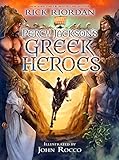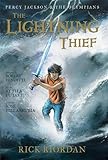Japan's Prestigious Good Design Award Goes To . . . A World Map?
Language
Reading Level
Listen to Article

The decision to bestow the 2016 Good Design Award, Japan’s most prestigious design honor, upon the AuthaGraph World Map came as a surprise to many. Given that previous winners have been innovations like personal mobility chairs and robotic arms, people wondered what had impressed the judges about the design of a map. It turns out that this strange-looking map is the most proportionate depiction of our planet.
The world map, as we know it, uses the Mercator Projection, a mapping technique developed in 1569 by cartographer Gerardus Mercator. Though excellent for navigation, the method significantly distorts the size and proportion of land masses and bodies of water. So while North America and Africa appear to be about the same size, in reality, the former could fit inside Africa with room to spare for India, Argentina, Tunisia, and much more. Similarly, though Brazil is more than five times larger than Alaska, it is the latter, that appears bigger. The reason for the discrepancies has to do with the challenge of transposing the 3-dimensional spherical surface of Earth onto a 2-dimension flat map, a task that is surprisingly hard to do accurately.

Over the years, there have been numerous attempts to solve the issue. The Galls-Peters projection tried by vertically compressing the regions near the poles, while the Mollweide projection bent continents around the corners to portray them more accurately. Though the Boggs eumorphic projection showed the correct shape and land mass size by slicing the globe into sections, the map was not practical for ocean navigation.
The AuthaGraph World Map, which beat out 1,000 entries in various categories, appears to have solved the issues using geometry. Created by architect and designer Hajime Narukawa, it divides the globe into ninety-six equal triangles and projects them onto a tetrahedron shape. This simple technique preserves the proportions of the land and water when going from a 3-dimensional sphere to a 2-dimensional map.

The result is an accurate map that is unlike any other. Instead of lining up straight across, the continents curve upwards, as though smiling at finally being represented accurately. It also appears as though Africa and the Americas have swapped places. As for those tidy longitude and latitude grids? They have been reduced to a mishmash of curvy and twisty lines!
But peculiar as it looks, this is the closest anyone has ever come to representing the size and proportions of the surface of Earth accurately. What makes the AuthaGraph World Map really unique is that the dimensions remain the same, whether viewed as a 3-D globe or a 2-D map.

In their announcement declaring the AuthaGraph World Map as the overall winner, the officials at Good Design Award say it was selected because it “faithfully represents all oceans [and] continents, including the neglected Antarctica,” and provides “an advanced, precise perspective of our planet.” They did, however, suggest increasing the accuracy further by cutting the world into even smaller chunks.
While the AuthaGraph World Map is not ideal for use in navigation, it does have some practical applications like helping us better understand how things like airplane flight paths are affected by the Earth’s curvature. It is also a better map for use in classrooms and has already been incorporated into Japanese textbooks. Whether it is adopted more widely remains to be seen. Meanwhile, those eager to observe the world more accurately, can purchase the map directly from the architect’s website.
Resources: newsatlas.com, spoon-tamago.com, mashable.com, wired.com
Cite Article
Learn Keywords in this Article
163 Comments
- ssssssover 7 yearsi love it
- ssssssover 7 yearsAwesome
- ssssssover 7 yearsnice
- sssssssssssssssover 7 yearscool
- atraalmost 8 yearswhy is Russia so small
- atraalmost 8 yearssoooooooooooooooooooo cool
- chicken pot piealmost 8 yearsit's cool
- chicken pot piealmost 8 yearsthat's cool
- friend almost 8 yearsthat's very cool
- nicealmost 8 yearsthat's cool




